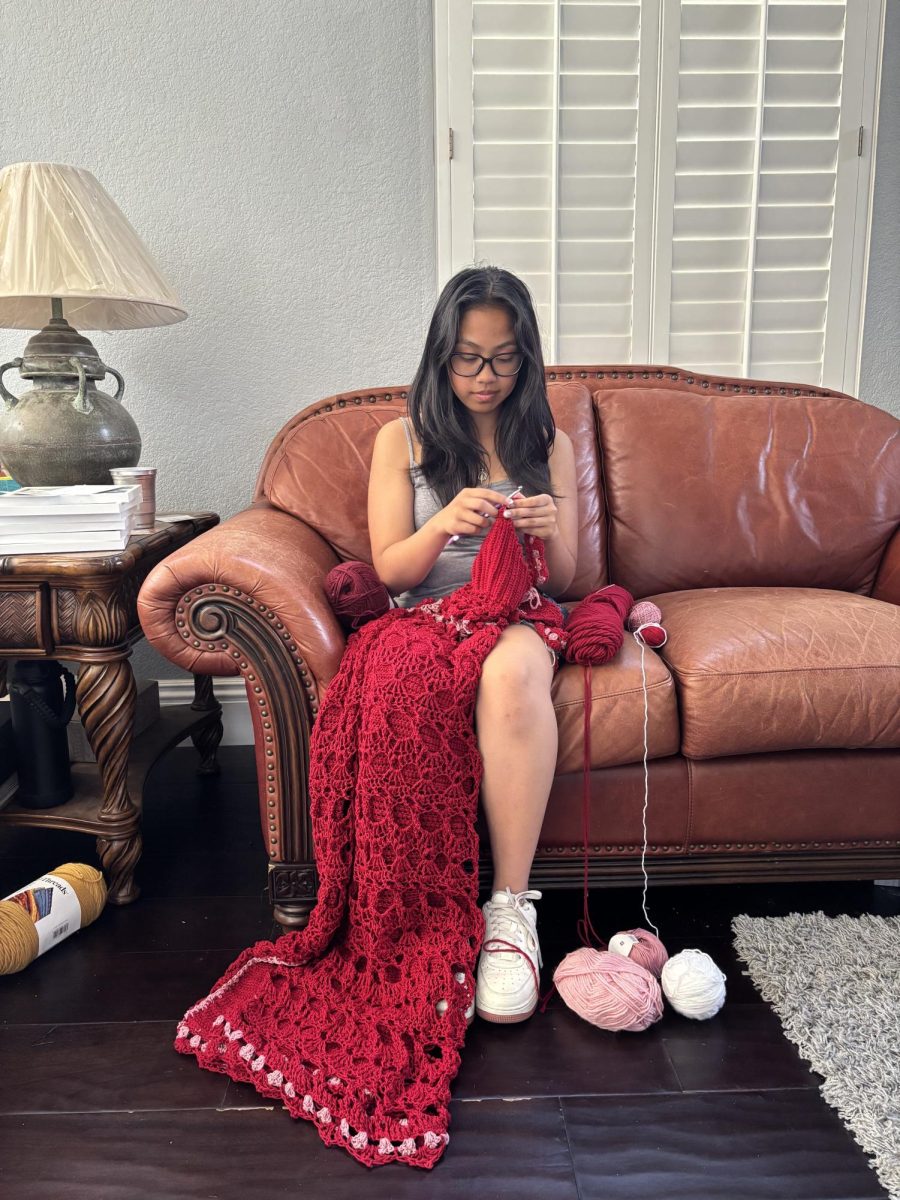The recently implemented Chinese Language curriculum, teaching Mandarin, having started this year, is a new option for language and culture acquisition at Westview. The class kicked off with an auspicious beginning, with a large number of students eagerly choosing to participate in its varying levels. This semester has offered both Chinese 1-2 and AP Chinese.
“I was excited to have the opportunity to take Chinese as a first-year high school student,” Kiana Lee (9) said. “My older sister and other students did not have the chance to take the class at Westview, and I’m glad to be the first batch of students to participate.”
Li Qi, the newly hired teacher for the Chinese classes, shares this excitement. She said the Chinese courses at Westview would continue her extensive career in the subject, something she loves to teach.
“I first heard about the Chinese teaching position [at Westview] in around May or June of this year,” Qi said. “My undergraduate degree was in Chinese language and literature. Before, I worked at a middle school in their Mandarin Immersion program for five years and I taught Chinese for two years at Torrey Pines High School, so this was a good opportunity. I ended up getting the job a few weeks before school started and I [have loved] working with the students.”
In teaching Chinese 1-2 and AP Chinese, she tries to take a more interactive approach to teaching the language, centering the learning on activities like projects, discussions, and presentations. She tailors her methods to each individual class, depending on the background and experiences of the students.
“I emphasize communication in my classes [with] more activities where students are able to speak with one another,” Qi said. “And the more I get to know the students and their levels in Chinese [through this], the more I feel like I can design my teaching to the class.”
Qi’s AP class, for example, has a variety of students with different experiences with Chinese. Overall, she has adjusted accordingly to make sure all students have a fun and fulfilling learning experience.
“My AP Chinese students are all from different backgrounds,” Qi said. “Some of them just immigrated from China and they are very fluent, while others acquired the language in the U.S. They are all advanced in Chinese, so the course has changed to be fast-paced and we are able to cover more on culture than the language. I have them [speak] Chinese 100% of the time and we have very deep class discussions.”
Lucy Wang (11), a student in the AP Chinese class, really enjoys this method of teaching.
“Chinese was my first language, so the speaking part was not very hard for me,” Wang said. “But what I really like about the class is the presentations and discussions because you have to do research beforehand on really interesting topics, like Chinese cultures. We have done a lot of stuff based on China’s geography too, which was really cool. It enhanced my knowledge of my own culture.”
Wang said she was able to strengthen her language skills through these engaging activities, making AP Chinese her favorite class of this term.
For the Chinese 1-2 students, Qi took a slightly different approach.
“The [1-2] students are still learning, so they are more active in the language part of the class,” Qi said. “They learn useful Chinese expressions and vocabulary and we just want to encourage the students to talk as much as they can. ”
This doesn’t take away from the interactive part of the class, however, as Qi finds creative ways to implement these basic speaking and writing skills. Lee, participating in the 1-2 class, finds Qi’s methods very dynamic and engaging.
“The lesson games we play are one of the best parts [of the class],” Lee said. “[They] are team building activities where we review all of our vocabulary [in] a fun and competitive way. These games are really fun and stimulate a learning environment while keeping everyone engaged!”
Lee said that they also do projects and presentations, where they learn about different Chinese celebrations and traditions. As someone who speaks Chinese at home, Lee is more outspoken in these activities, but she said that most of the class feels comfortable speaking, even if they are beginners.
“The class is very welcoming and treats everyone with respect,” Lee said. “Having a good mix between those who are just starting to learn the language and those who have prior knowledge is creating a friendly and helpful environment. It brings people together and provides a space where we can learn from each other.”
Wang found the same positive atmosphere in the AP Chinese class, which allowed her to form connections quickly.
“When I first entered the class, I didn’t know any of the students, so I was a little nervous,” Wang said. “But by the end of the first week, I made a couple of friends already due to the easygoing environment. It’s probably because a lot of people in the class are native speakers, so there are a lot of similarities in culture and preferences.”
Qi said that this environment is essential for a fun and effective learning experience. So, while she tries to implement a rigorous curriculum, Qi also tries to create a relaxed, enjoyable class.
“I feel like the first impression I [had] of Westview students was that they were working really hard and had stressful lives,” Qi said. “During class, I [checked] in with them, and most of them [told] me that they [were] tired and busy every day. So, I felt, for the students, I needed to find a balance between the difficulty of the course and fun activities.”
Qi will go on to teach Chinese 3-4, 5-6, 7-8, and AP next term. She said that teaching students Chinese, or foreign languages in general, is extremely beneficial for developing respectful, open-minded citizens.
“Language is a tool,” Qi said. “It’s very important to open your eyes and your mind to the world and the people around you to embrace our cultural differences.”




